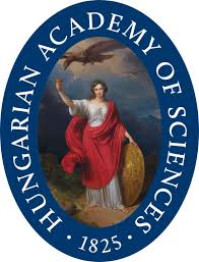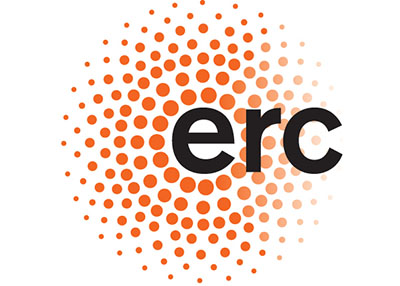
ERC Grant winning Hungarian scientists, an award presented to top European scientists, are also standing up for the funding of the MTA and basic research to remain as it is. The European Research Council (ERC) operates the European Union’s largest grant system funding exploratory research. The ERC’s mission is to provide long term support for pioneering, high risk but highly promising research projects. The sole prerequisite for winning this grant is scientific excellence. Leading scientists who plan to pursue research in Europe can apply for the ERC Grant without any prerequisites regarding age, gender or home country.
The strength of basic or exploratory research in Hungary is reflected by the fact that Hungarian researchers excel in the region even in this field. Out of a total of 168 grants awarded to the EU13 countries, 69 grants were won by Hungary, which is 41 percent of all awarded grants. Out of these 69 grants, the MTA research institutes won 31 grants, and a further 9 grants were awarded to joint research by the Academy and universities.
Innovation, future technologies and fresh knowledge about the world and mankind itself all stem from basic research.
The majority of Hungarian ERC Grant winners have already signed the following letter of support, which we are hereby publishing below without any changes:
Following the disconcerting events over the past few weeks we wish to express our full support for the resolution of the Presidium of the Hungarian Academy of Sciences adopted unanimously on 15 June 2018. We call on the Hungarian Government to withdraw the proposed amendment of the Law on the Hungarian Academy of Sciences (Act XL of 1994) as well as its proposal to cut the Academy’s direct budgetary support.
The proposal on the State budget of Hungary for 2019 would hand over two-thirds of the budget of the Hungarian Academy of Sciences (MTA) to be under the direct supervision of the Ministry of Innovation and Technology resulting in fundamental changes in the financing and the control exercised over its operations. The proposal would furthermore provide grounds for decisions regarding the administration of the Academy’s research network and the selection of research priorities to be made without the consent of the Academy’s leadership.
We are convinced that any decision aimed at changing the very foundations of the financing and management of a national institution dating back almost 200 years can only be successful if it is based on prior and meaningful consultation with relevant stakeholders. Failing such consultation, the Academy’s leadership and the Hungarian scientific community will not be able to trust Government intentions to create a coordinated research funding concept.
The European Research Council (ERC) awards funding to the most excellent scientists in Europe for their research work offering the potential of a scientific breakthrough. As grantees of the ERC we are standing up for the MTA and for the funding of basic research.
Success in innovation will only come if basic research is pursued on a high level. Genuine scientific breakthroughs are not produced to seek immediate answers to today’s innovation challenges. They are designed rather to widen the scope for future solutions to these, lay the foundations for emerging fields of science, or highlight unexplored trends in our societies. Any approach suggesting that the sole purpose of basic research is to provide the key to today’s innovation challenges can only be deemed short-sighted.
Therefore it is essential that scientific excellence remain the only criterion for funding decisions at the only Hungarian institution dedicated to basic research. It is also essential that the funding for basic research should not be reduced at the expense of industry-driven applied sciences.
Established in 2007, ERC does not predetermine any research objective to follow; researchers are free to apply from across all fields of science. We as ERC grantees hosted in Hungary were all rewarded for our individual research interests and our ideas driven by curiosity. Nevertheless so far we have obtained EU funding for research institutions in Hungary at a rate of over 110 million euros. This is proof that Hungary’s top research institutions, among them the Hungarian Academy of Sciences, have the highest number of ERC grants and provide a solid foundation for Hungary’s efforts to extend its scientific potential by means of basic research projects renowned worldwide.
We hereby call on the Government to change its proposal and call on the Parliament not to pass a decision which would undermine the MTA’s present-day freedom and financial autonomy. In our view the proposed redirection of funds would cause irreversible damage to the integrity of the Academy, would erode the trust of the scientific community in Hungarian science policy, while it would also reverse the fragile achievements of recent years, and threaten to force talented researchers to leave Hungary in pursuit of a more rewarding scientific career.
Budapest, 27 June 2018
Following is a list of all signatories:
Abért Miklós, MTA Rényi Alfréd Matematikai Kutatóintézet
Acsády László, MTA Kísérleti Orvostudományi Kutatóintézet, D.Sc.
Bárány Imre, MTA Rényi Alfréd Matematikai Kutatóintézet, MTA Full Member
Csibra Gergely, Közép-európai Egyetem
Csonka Szabolcs, Budapesti Műszaki és Gazdaságtudományi Egyetem
Dénes Ádám, MTA Kísérleti Orvostudományi Kutatóintézet
Egry Gábor, Politikatörténeti Intézet, D.Sc.
Gergely György, Közép-európai Egyetem, D.Sc.
Gyürky György, MTA Atommagkutató Intézet, D.Sc.
Hangya Balázs, MTA Kísérleti Orvostudományi Kutatóintézet
Kállay Mihály, Budapesti Műszaki és Gazdaságtudományi Egyetem, D.Sc.
Katz Sándor, Eötvös Loránd Tudományegyetem, Corresponding Member
Katona István, MTA Kísérleti Orvostudományi Kutatóintézet, D.Sc.
Knoblich, Günther Klaus, Közép-európai Egyetem
Kocsis Bence, Eötvös Loránd Tudományegyetem
Kondor Péter, Közép-európai Egyetem
Kondorosi Éva, ERC-alelnök, MTA Full Member
Koren Miklós, Közép-európai Egyetem
Kóspál Ágnes, MTA Csillagászati és Földtudományi Kutatóközpont
Kovács Ágnes Melinda, Közép-európai Egyetem
Kovács Levente, Óbudai Egyetem
Kőszegi Botond, Közép-európai Egyetem, az D.Sc.
Krstić, Tijana, Közép-európai Egyetem
Kubinyi Enikő, Eötvös Loránd Tudományegyetem
Lengyel Máté, Közép-európai Egyetem
Lugaro, Maria, MTA Csillagászati és Földtudományi Kutatóközpont
Makara Judit, MTA Kísérleti Orvostudományi Kutatóintézet
Marx Dániel, MTA Számítástechnikai és Automatizálási Kutatóintézet
Mócsai Attila, Semmelweis Egyetem, D.Sc.
Nagy László, MTA Szegedi Biológiai Kutatóközpont
Nusser Zoltán, MTA Full Member
Pál Csaba, MTA Szegedi Biológiai Kutatóközpont, D.Sc.
Pete Gábor, MTA Rényi Alfréd Matematikai Kutatóintézet és Budapesti Műszaki és Gazdaságtudományi Egyetem
Pintz János, MTA Rényi Alfréd Matematikai Kutatóintézet, MTA Full Member
Pócs Éva, MTA Bölcsészettudományi Kutatóközpont, D.Sc.
Pyber László, MTA Rényi Alfréd Matematikai Kutatóintézet, Corresponding Member
Röst Gergely, University of Oxford and Szegedi Tudományegyetem
Sebanz, Natalie, Közép-európai Egyetem
Simon Ferenc, Budapesti Műszaki és Gazdaságtudományi Egyetem, D.Sc.
Sperber, Dan, Közép-európai Egyetem, az MTA tiszteleti tagja
Stipsicz András, MTA Rényi Alfréd Matematikai Kutatóintézet, Corresponding Member
Szabadics János, MTA Kísérleti Orvostudományi Kutatóintézet
Szakács Gergely, MTA Természettudományi Kutatóközpont
Szeidl Ádám, Közép-európai Egyetem
Szöllősi J. Gergely, Eötvös Loránd Tudományegyetem
Takács Károly, MTA Társadalomtudományi Kutatóközpont
Téglás Ernő, Közép-európai Egyetem
Vankó György, MTA Wigner Fizikai Kutatóközpont
Vicsek Tamás, Eötvös Loránd Tudományegyetem, MTA Full Member



